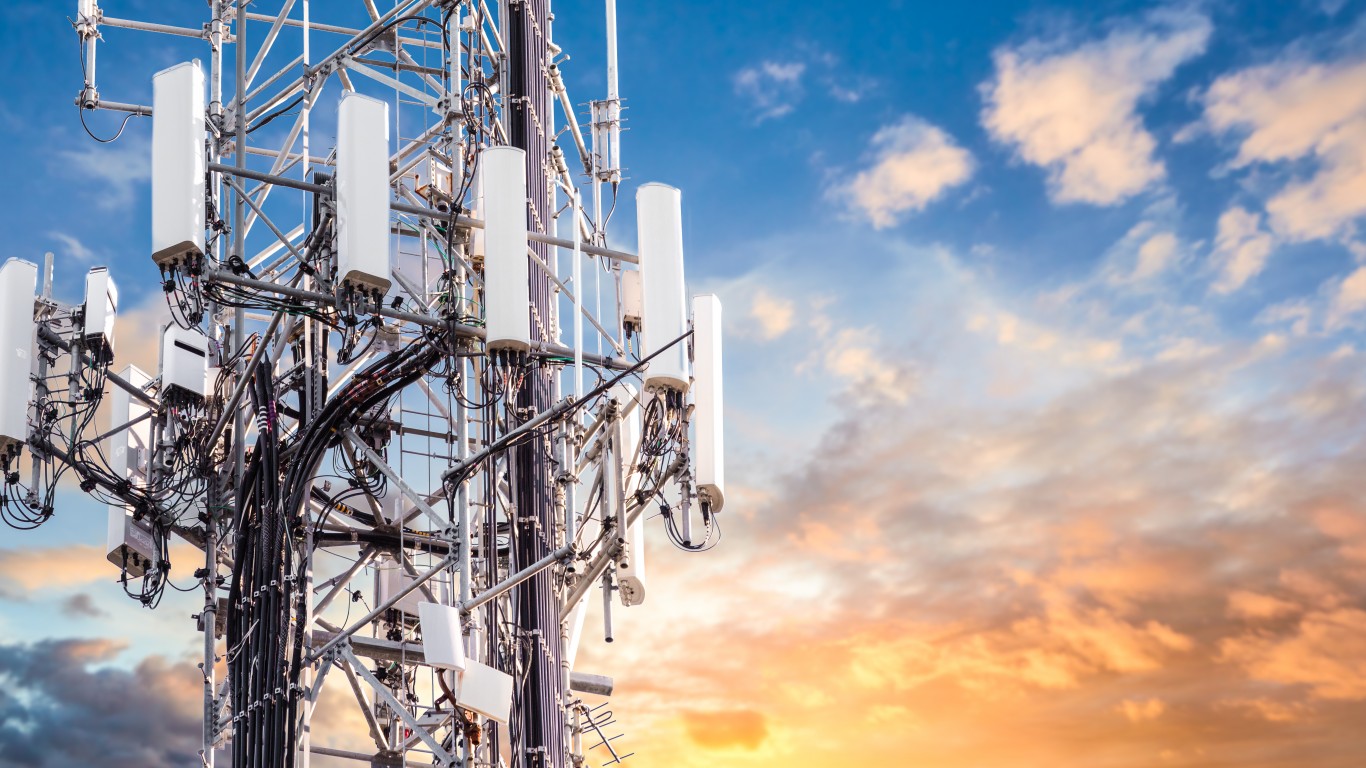
Verizon trades in a relatively narrow range. Over the past 12 months, it has changed hands between $56.85 and $45.55 a share. The stock closed most recently at $50.65 per share. They have traded fairly flat this year, which means they have dodged the terrible sell-off that has undermined much of the stock market.
Verizon is in a remarkably boring business. Most of its sales come from wireless, wireline and broadband to the home products and services. Most Americans have one or more of these. Each is considered essential to some part of daily life. Each has competition, but that is mostly against one company, AT&T.
The pricing power each wireless company has had recently was eroded by a fight to get new 5G customers. While that is not over, most people who could have switched providers have done so by now. Wireless providers have started to raise rates, and discounts on products like the Apple iPhone will start to become a thing of the past.
Verizon has a dividend yield of 5.5%. That payout almost certainly will not be cut, even if the markets dip lower. And even if interest rates continue to rise, yields on government bonds will not match that soon, if at all.
Click here to see which were the most innovative companies last year.
Thank you for reading! Have some feedback for us?
Contact the 24/7 Wall St. editorial team.


